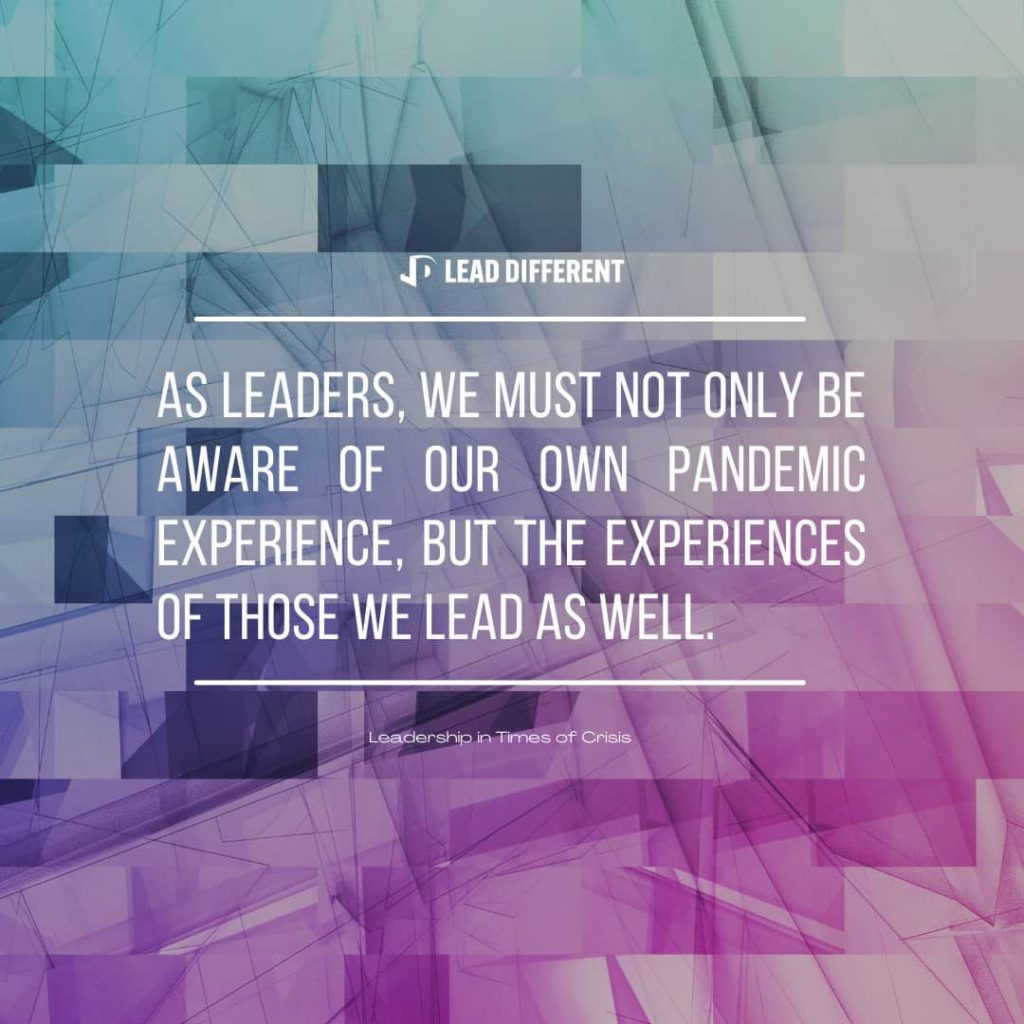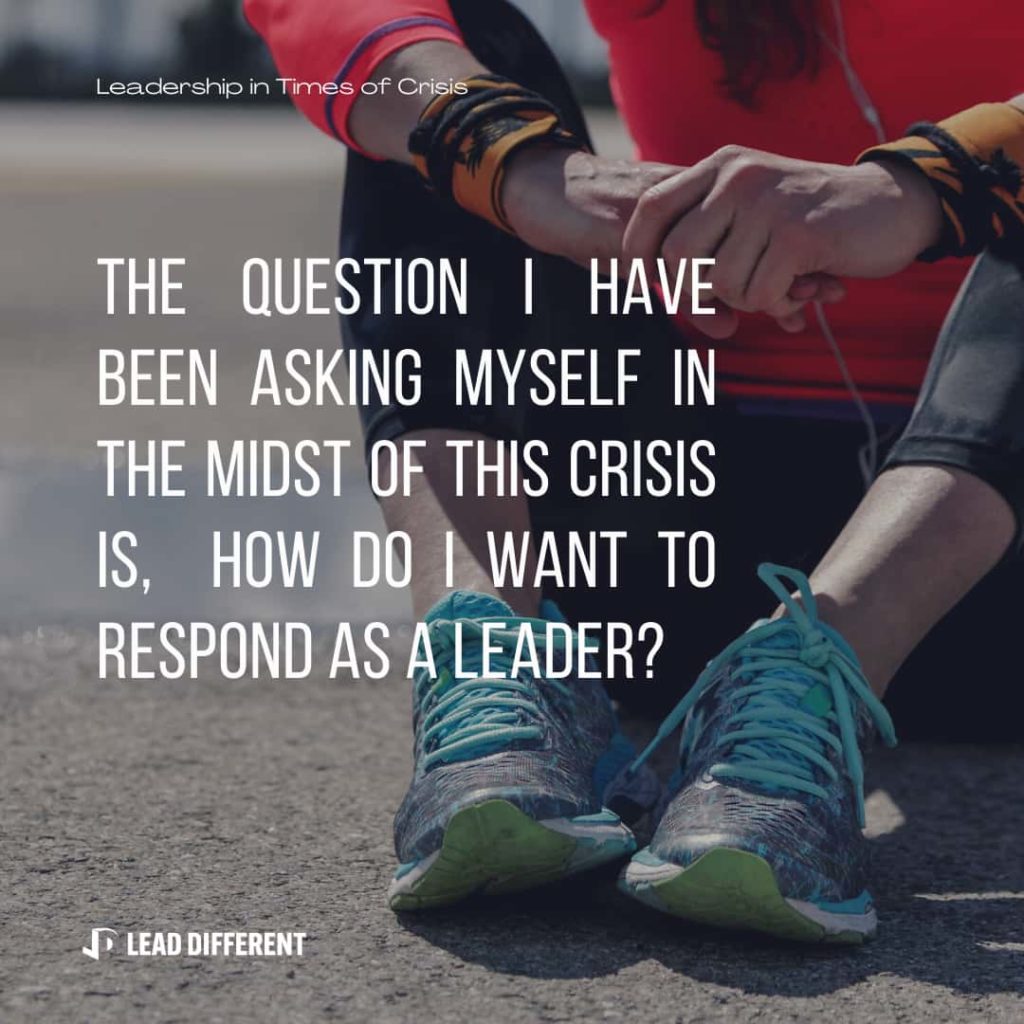
Leadership In Times Of Crisis
January 29, 2021
Russ Ewell
“If there’s a book that you want to read, but it hasn’t been written yet, then you must write it.”
Toni Morrison
“Write the book you want to read” is the wise and persistent advice that has flowed to me from a diverse collection of writers — from James Baldwin to William F. Buckley, Alice Walker to Peggy Noonan, Winston Churchill to J.K. Rowling, Toni Morrison to Fyodor Dostoevsky, and C.S. Lewis to Ralph Waldo Emerson.
“Leadership in Times of Crisis” is written in this spirit. Despite having described the pandemic-disrupted year of 2020 as “The Age of the Coronavirus,” only recently have I completely accepted the truth of what this means — we are in crisis, and as the new President of the United States Joe Biden made clear, crises require action.
“The crisis is not getting better. It’s deepening,” Biden said Friday about the impact of the pandemic. “A lot of America is hurting. The virus is surging. Families are going hungry. People are at risk of being evicted again. Job losses are mounting. We need to act.”
“The bottom line is this: We’re in a national emergency. We need to act like we’re in a national emergency,” he said.
Jonathan Lemire, “In First Days, Biden Flashes Action as Deep Problems Loom,” Associated Press
This pandemic crisis is the predominant force at work in our lives. COVID-19 has become a force multiplier, which is a military term defined by the US department of Defense as “a capability that, when added to and employed by a combat force, significantly increases the combat potential of that force and thus enhances the probability of successful mission accomplishment.”
Every aspect of our lives has been disrupted by the force multiplying impact of the novel coronavirus. The negative has multiplied especially for those less fortunate, turning everyday discouragement into chronically stressful and in some cases emotionally devastating events. The positive has multiplied especially for those more fortunate, turning normal opportunities for progress and success into paradigm-shifting transformative moments.

We see the emotional devastation in the more than 423,000 U.S. deaths (over 2 million worldwide) from COVID-19. Yet these numbers do not reveal the racial, ethnic, and social disparities of the most devastated:
Data on race and ethnicity for more than 90% of people who died from COVID-19 reveal that the percent of Hispanic or Latino, non-Hispanic Black, and non-Hispanic American Indian or Alaska Native people who have died from COVID-19 is higher than the percent of these racial and ethnic groups among the total U.S. population.
CDC Covid-19 Racial and Ethnic Health Disparities (Click link to see graphs)
As if experiencing an outsize percentage of deaths was not enough, those in this demographic experience poverty at the highest levels.
For instance, while poverty among white individuals is a painful 12.3 percent, among black individuals the number is a socially devastating 26.3, and Hispanic individuals experience an even higher 26.9 percent poverty rate (Boghani, “How COVID Has Impacted Poverty in America”, Frontline).
In the meantime, paradigm-shifting transformative moments are happening for companies like Amazon — an already successful company that has become even more ubiquitous as it appears to meet the American public’s every need. As a result, their founder and CEO Jeff Bezos is the richest man in the world (recently dethroned by Elon Musk), with a net worth of $184 billion. He is now on pace to become the world’s first trillionaire by 2026 (Semuels, “Many Companies Won’t Survive the Pandemic. Amazon Will Emerge Stronger Than Ever,” Time).
And Amazon is not alone:
The seven most valuable U.S. technology companies — Apple, Microsoft, Amazon, Alphabet, Facebook, Tesla, and Nvidia — picked up a combined $3.4 trillion in market cap in 2020, powering through a global pandemic and broader economic crisis.
Ari Levy, “Tech’s top seven companies added $3.4 trillion in value in 2020,” CNBC
Perhaps you are asking what all of this has to do with your personal pandemic crisis? The answer is this: as leaders, we must not only be aware of our own pandemic experience, but the experiences of those we lead as well.

This awareness must become empathy, where we understand as Bloomberg reports, “Over the past 10 months, higher-income earners have, relatively speaking, had it pretty good.”
Employment for the top quartile of workers — those earning over $60,000 a year — has already recovered above levels from a year ago, according to data from Opportunity Insights, a nonpartisan research institute based at Harvard University.
Davide Scigliuzzo, “The Rich are Minting Money in the Pandemic Like Never Before,” Bloomberg
Employment for the bottom quartile of American earners — those making less than $27,000 a year — remains more than 20% below January 2020 levels. Last month, nearly 30 million adults lived in households where there wasn’t enough to eat, according to the U.S. Census Bureau’s Household Pulse Survey, up 28% since before the pandemic. In Louisiana, the worst affected state, one out of every five people now faces food scarcity, the survey shows, with the numbers being even more dire among Black Americans.
“The Rich are Minting Money in the Pandemic Like Never Before”
The question I have been asking myself in the midst of this crisis is, how do I want to respond as a leader? Will I have compassion on those in pain and choose to lead in a way that eases their pain? Do I have the courage to see and embrace opportunities for transformative paradigm-shifting change? Perhaps most importantly, how am I doing as a husband, father, and friend at helping those for whom I care to flourish during this crisis?

A crisis requires action, and as leaders it is incumbent upon us to see the economic, social, emotional, and spiritual danger of this pandemic. At the same time, we should look for opportunities, so we can inspire those we lead to learn from rather than hate organizations like Amazon, whose innovative culture is worthy of imitation. In choosing to learn from rather than hate successful organizations, we can help more people discover their own paradigm-shifting transformative moments.
If as leaders we learn to empathize and are willing to not only serve those in need, but at the same time inspire them to see and believe in future opportunities, we will become the effective leaders this world so desperately needs during this uniquely painful time of crisis.
Note: This is the first part of a series of articles about leading in times of crisis. In future installments we will evaluate the leadership of individuals like Franklin Roosevelt, John F. Kennedy, Martin Luther King, Ulysses S. Grant, Frederick Douglass and more with the hope their experiences can help us navigate crises successfully.

